Karachiites get a lesson in Kendo at the Japanese consulate
‘Hamara Dostana’ event organised to celebrate 65 years of diplomatic relations
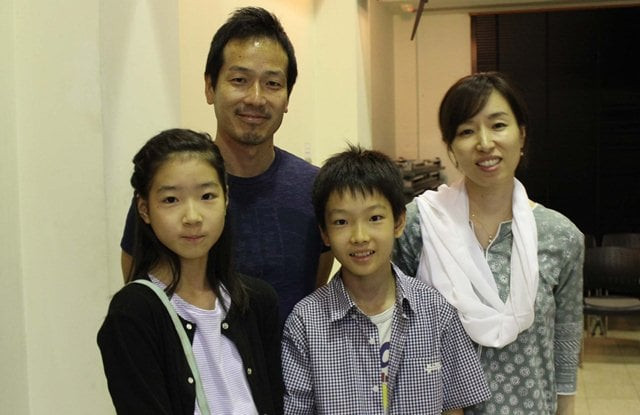
Seguchi, a Japanese national living in the city for the last two years, had come with his family. PHOTO: SIHAM BASIR/EXPRESS
Their legacy, however, continues in the form of Kendo, a Japanese sword fighting sport. To celebrate 65 years of Japanese-Pakistani diplomatic relations, the consulate in Karachi held on Saturday a two-day event, 'Hamara Dostana', in which a Kendo and Jujitsu demonstration was showcased.
The demonstration was led by Toru Hisabayashi, an employee of the Hitochu Corporation with Yukio Matsumoto, the security incharge of the consulate, and Osamu Hisaki, an employee of the Japan External Trade Organisation (Jetro), participating.
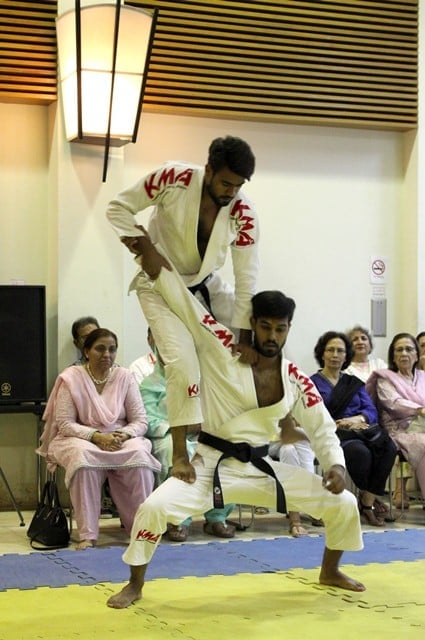 The event also featured a Jujitsu demonstration by young Pakistani athletes from the Jujutsu Organisation of Pakistan. PHOTO: SIHAM BASIR/EXPRESS
The event also featured a Jujitsu demonstration by young Pakistani athletes from the Jujutsu Organisation of Pakistan. PHOTO: SIHAM BASIR/EXPRESSKendo, which is fought from a distance with bamboo swords, seems like an easy sport but actually requires great skill to strike opponents in four specific spots to claim a point. The targets are the Men (the head), Kote (wrists), Do (body) and Tsuki (throat). Hisaki said that unlike action movies, Kendo swords were very sharp and often the action was finished within a second.
The bout
To better explain to the audience what a Kendo fight is like, Hisabayashi, a seventh grade licence holder of the sport, battled Matsumoto and Hisaki who are fourth and third grade licence holders respectively.
Japan announces grant to eradicate polio in Pakistan
At the start of the fight, the opponents, each clad in traditional protective gear, acknowledged one another with a slight bow before assuming their positions.
As they drew closer, the fighters started tapping the ends of their swords, waiting for an opening to strike. Hisaki, who gave a presentation about the sport, said that this is what makes the Kendo a mental challenge as one has to be alert in the face of constant shouting by their opponents. The fighters all belted out throaty cries as they swung their swords.
The sport holds special reverence for the Japanese, as the consulate had specially cleaned the fighting area and demarcated it to stop the audience from entering it with their shoes on. However, the task to ensure that no one crossed the line was an arduous one, as few listened to the consulate staff urging guests to walk on the side. At one point, even Japanese Consul-General Toshikazu Isomura began instructing people not to cross the line.
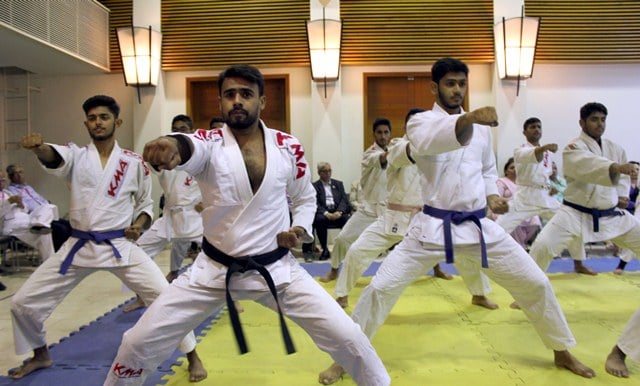 Even though only a small number of Karachiites attended the event, they left the consulate fascinated by the performance. PHOTO: SIHAM BASIR/EXPRESS
Even though only a small number of Karachiites attended the event, they left the consulate fascinated by the performance. PHOTO: SIHAM BASIR/EXPRESSMatsumoto, who spoke to The Express Tribune after the fight, said he had been practicing Kendo since he was six years old. When asked how he makes time to practice the sport considering he is the consulate's security incharge, he said that he practices on the weekends.
Meanwhile, Hisaki said he had regularly played the sport from the age of three till 18. "I resumed playing Kendo after a gap of 20 years when I was posted in Karachi."
Japanese IT industrialists scope talent
He shared that in total, there are eight grades of Kendo and each level has a separate test. The test includes two bouts, Kata (which is a fixed pattern of movements) and a written test, he said.
Hisaki added that reaching the eighth level of Kendo is more difficult than being a lawyer and has a passing rate of 0.7%.
The event also featured a Jujitsu demonstration by young Pakistani athletes from the Jujutsu Organisation of Pakistan. The young men and women demonstrated basic self-defence moves, fighting stances and other fight moves.
Even though only a small number of Karachiites attended the event, they left the consulate fascinated by the performance.
Seguchi, a Japanese national living in the city for the last two years, had come with his family. He said that the demonstration was impressive. In fact, his 12-year-old son and 10-year-old daughter, who had never seen a Kendo performance, were also impressed by the demonstration. His wife, however, was more fascinated by the Jujitsu demonstration, as she said it was far more energetic than Judo, which she had seen before.
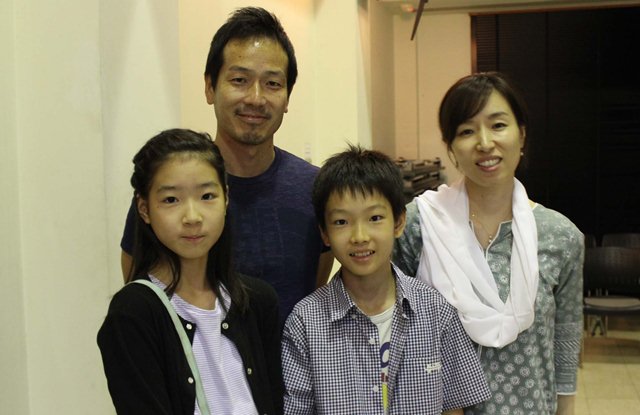 Seguchi, a Japanese national living in the city for the last two years, had come with his family. PHOTO: SIHAM BASIR/EXPRESS
Seguchi, a Japanese national living in the city for the last two years, had come with his family. PHOTO: SIHAM BASIR/EXPRESSConsul-General Isomura, when asked if the consulate plans to open a Kendo club, said that the city does not have a teacher capable of training students in Kendo. However, during his speech, he expressed his hope that the two countries would continue to improve ties and strengthen their business relationship.

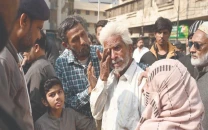

















COMMENTS
Comments are moderated and generally will be posted if they are on-topic and not abusive.
For more information, please see our Comments FAQ